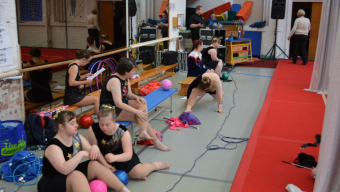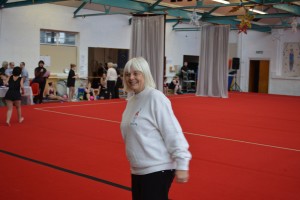We’re right in the middle of a wondrous panoply of athletic pursuits.
Two weeks ago we witnessed one of the finest performances ever in the Super Bowl, as a quick, hard-hitting, calculating Seattle Seahawks defensive unit, beat down the Denver Broncos, who had entered the game as a smart, precise and efficient offensive units coming off one of the most prolific offensive seasons ever.
This weekend we’ll see the NBA All-Star Game, featuring what many believe are the best athletes in the world, large-bodied men with remarkable agility and coordination.
That will be followed next weekend by the Daytona 500, the pinnacle of race-car driving. It’s a sport that requires quick reactions, vision and endurance, although many would not consider those folks to be ‘athletes.’
Then in March we have the contrasting athletic variety of spring baseball, NCAA basketball and, in early April, The Masters, golf’s premier event. Golfers, like race car drivers, have been much maligned for their claim of athleticism. Yet we dedicate this web site, golferswest.com, to those strolling club-swingers because we believe it takes extraordinary skills to perform at such a level.
What this time of year does is provide a disparate definition – and debate – over what constitutes an athlete.
It’s my belief that all these sports performers are athletes, although one one sport has everything you would define as the pure athleticism. Some of strong and powerful but without coordination. Some may be calculating, creative with great vision but plodding.
Take Peyton Manning, a five-time NFL MVP who has the remarkable ability to read a defense, adjust and, with his quick release, find the open receiver. Yet he couldn’t get out of the way of a falling leaf. Take Kevin Durant, a smooth, quick forward for the Oklahoma City Thunder who is one of the finest young shooters in the history of the NBA. Yet when he came out of college he finished last among NBA prospects in the bench press. He couldn’t lift his suitcase.
Both couldn’t be more different yet both are considered among the best in their sports.
What it means is we can’t put a limit on our perceptions of athleticism. That’s what struck me recently when I had the privilege of spending a week with a group of special Olympians.
They are athlete is a strict sense, are they? Think about that.
We were part of a group that helped escort about 15 girls, mostly from the Atlanta area, during a competition in Manchester, England. They were there to compete in a Special Olympic event against a similar group of British Special Olympians.
Now these kids don’t show eye-popping skills. That’s apparent. They are slow and struggle to complete some tasks but in so many areas where we define athleticism, they excel. What every great athlete has is a high level of intangibles. Without them, they are ordinary.
Those intangibles are what these Special Olympians possess in abundance.
“They don’t see themselves as having limitations,” said Cindy Bickman, who organizes the girls’ annual tour – through his Chattooga Foundation. She has been involved with the Special Olympics for more than two decades and has written many of the individual Special Olympics routines that are followed around the world during the competitions.
“I’ve been doing this for more than 25 years and the more I do it the more I don’t believe in disabilities,” she said. “I believe everybody has challenges. The mainstream athlete I coach, maybe their challenge is the fear of competition. Maybe they want to be a rhythmic gymnast but their body’s not as flexible.
“That’s the same thing as having a disability. It’s just different kind of challenge.”
Most of the girls we escorted are Down Syndrome, which limits their ability to follow a routine at times, to remember all the techniques and to coordinate it all with their bodies.
But what they do have is what you admire in all athletes, determination, drive, grit, passion, persistence, attention to detail, heart and an exuberance for sport.
We were on hand to watch rhythmic gymnasts, using hula hoops, bouncing balls, waving ribbons and jumping ropes. Depending on their level, they each had to complete a series of required moves, set to music.
“It makes me a better coach,” Bickman said. “For the Special Olympic athlete, they remember how you teach it the first time. So you really have to be correct the first time because that’s the way they remember it and do it always.
“You have to break things down. You teach them how to hold a rope in their hand, then swing the rope then swing it over their head. Then jump over forward and backward.”
Some got lost in the program yet they still finished their required set, long after the music ended. Some got confused and needed a coach on the sideline to bring them back to where they should be. Some missed a step, would stop and repeat the routine to get in right.
While watching their routines, you see everything they go through in their faces, the pain of a missed step, the frustration of not being able to complete a task, the lost look when they get confused. But you also the thrill and excitement when everything is working and the pure joy of finishing to the applause of the gathering.
These are athletes of the highest nature. They are to be admired for those intangibles that they take to the extreme. They want to be good and push themselves to be better. They are determined to be the best they can be. They want to compete for the sake of competition, not necessary victory. As their motto says, “let me win. But if I cannot win, let me be brave in the attempt.”
“What you have to do in coaching is reward the attempt and make goals achievable,” Bickman said. “To go onto the floor, to go out there by themselves, to achieve something and to be rewarded for it, it’s the greatest feeling in the world for them.
“This is the one place in life where they can be successful, when they step on a playing field that’s leveled by the special Olympic rules. It pretty amazing for them.”
Bickman said lives are changed through sports. She said one girl she coaches just recently completed a flawless routine for the first time in nearly 20 years of working at it. That’s perseverance. That’s persistence.
“To them, they don’t know they are any different from the other girls on the floor,” she added. “And really, they’re not.”
























